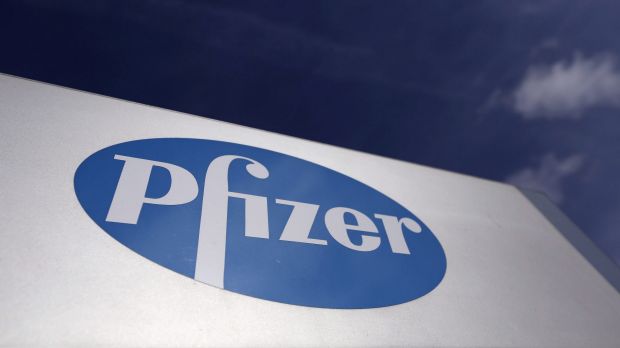
Hot water: Pfizer paid just $1.5 million in company tax in Australia last year. Photo: Bloomberg
Pharmaceutical companies will be put under the microscope by the Senate tax avoidance inquiry which recently exposed rampant “offshoring” of profits by Google, Apple and Microsoft.
Tax Commissioner Chris Jordan suggested senators turn their attention to the drug-making multinationals, saying the sector displayed similar “attributes of the tech industry” in the way their Australian arms transfer large sums of money to subsidiaries in tax havens around the globe.
The Economic References Committee met last week and discussed widening its focus to “big pharma”. The inquiry is likely to invite the largest drug makers to outline their tax affairs in submissions before considering public hearings.
Pharmaceuticals peak body Medicines Australia said it was preparing a submission for the committee on behalf of its members, who it described as “great employers who invest a lot in research and development”.
But drug companies have landed in hot water recently with authorities in the United States and Europe over apparent systematic attempts to downsize their tax bills.
Fairfax Media revealed this month that Pfizer, the biggest recipient of public money for medicines listed on the Pharmaceutical Benefits Scheme, paid just $1.5 million in company tax in Australia last year.
The company, which received $739 million from the government for filling 16.4 million subsidised scripts in 2014, reported local operating cash flows of $1.4 billion.
Pfizer has 128 entities registered in tax havens, according to US-based Citizens for Tax Justice, and $69 billion in assets held in those countries, which include Panama, Bermuda, Luxembourg and Singapore.
AstraZeneca, the second biggest supplier on the PBS, was the subject of a $118 billion takeover bid by Pfizer last year. The deal, which fell through, was a bid to establish the merged company in the UK where the corporate tax rate is lower than in the US.
AbbVie, which received $391 million from the PBS last year, attempted a similar “tax inversion” takeover of the UK’s Shire Pharmaceuticals. The company ditched its offer months before Shire came under fire from UK politicians for sending $10 billion in loan repayments to its arm in Luxembourg.
Mr Jordan told the Senate inquiry that the ATO is currently involved in an “international collaboration” on the tax affairs of big pharma.
“That industry demonstrates some of the attributes of the tech industry with respect to intellectual property giving rise to a lot of value, housing intellectual property in low-tax, no-tax jurisdictions and paying large royalties,” he said.
He said “highly structured” financing arrangements by certain companies had resulted in “very, very large tax deductions … here in Australia”.
The government signalled an assault on payments to drug makers before the budget but backed off in favour of a new round of consultation.
The industry appears to be gearing up for a fight on a number of fronts and Medicines Australia this week recruited James Boyce, a former media adviser to Prime Minister Tony Abbott, to spearhead its government relations efforts.
“Medicines Australia will be making a submission to the Senate Inquiry on behalf of our members and welcomes the opportunity to do so. Our members are not only big investors in local research and development they also employ many thousands of Australians who develop and manufacture world-class medicines for the local community. Our members obviously want this to continue well into the future,” said a spokesman.
Tax Justice Network spokesman Mark Zirnsak? said the pharmaceuticals companies should be called to public hearings and then the ATO given the chance to review or reject their evidence
